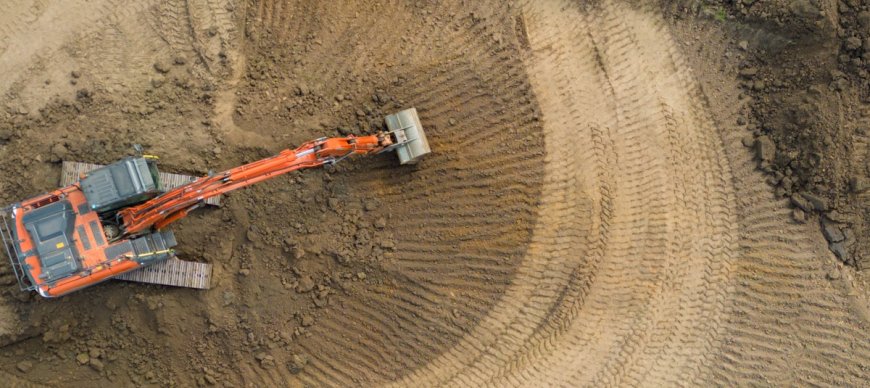How to Improve Waste Disposal and Recycling Practices in Portsmouth
In this blog, we will explore actionable steps that can be taken to improve waste management in Portsmouth, focusing on enhancing waste disposal and recycling practices for both residents and businesses.

As Portsmouth continues to grow and develop, effective waste management in Portsmouth has become an essential component of ensuring the city’s environmental sustainability and maintaining a high quality of life for its residents. Waste disposal and recycling are not just a matter of convenience; they play a critical role in reducing environmental impact, conserving natural resources, and contributing to a circular economy.
In recent years, Portsmouth has made significant strides in improving waste management practices. However, as the city grows, there remains room for improvement in waste disposal and recycling strategies. By focusing on key areas such as public education, infrastructure development, and community engagement, Portsmouth can lead the way in adopting best practices for waste management while becoming a cleaner, more sustainable city.
We will also look at how the city’s local authorities, industries, and the general public can work together to make Portsmouth a model of eco-friendly waste management.
1. Educating the Public on Proper Waste Disposal and Recycling
One of the most effective ways to improve waste management in Portsmouth is to focus on public education and awareness campaigns. Many waste disposal and recycling issues arise due to confusion about what can and cannot be recycled, improper waste segregation, or simply a lack of knowledge about how to recycle effectively.
1.1. Run Public Awareness Campaigns
Portsmouth’s local authorities and environmental groups can play a key role in educating residents about the importance of waste reduction and proper recycling. Public awareness campaigns should aim to inform citizens about the environmental benefits of recycling, how to correctly sort materials, and why proper waste disposal is essential.
For example, campaigns can highlight the difference between recyclable materials (like paper, glass, and certain plastics) and non-recyclable waste (such as dirty or contaminated food packaging). Education can also include encouraging the use of reusable bags, bottles, and containers to reduce single-use plastic waste, which is a growing concern in many urban areas.
1.2. Schools and Community Engagement
It is also crucial to integrate waste management education into schools and community programs. Schools are an excellent setting to instill positive waste disposal habits early on, teaching children how to recycle and dispose of waste responsibly. Community workshops or local events can help raise awareness among adults and elderly citizens, ensuring that everyone in the community understands the importance of participating in waste management practices.
1.3. Clear and Accessible Information
Portsmouth can improve its recycling initiatives by making recycling guidelines easy to understand and accessible. A lack of understanding often leads to contamination in recycling bins, making otherwise recyclable materials unsuitable for reuse. The use of simple, visually appealing materials, such as posters and clear instructions on bins, can help ensure that people know exactly what should be disposed of where.
2. Expanding Recycling Services and Facilities
The next step in improving waste management in Portsmouth is to expand the city's recycling infrastructure. As more people adopt eco-friendly waste disposal practices, the demand for accessible recycling services grows.
2.1. Increase the Variety of Recyclable Materials
Portsmouth should consider expanding the types of materials that can be recycled. Currently, many cities have limited recycling programs, where only certain types of plastic, paper, or metals are accepted. By increasing the number of materials that can be recycled, such as more types of plastic or e-waste (electronic waste), Portsmouth can reduce the amount of waste that ends up in landfills and incinerators.
For example, certain plastics, such as plastic films or food packaging, are often not accepted by standard curbside recycling services. Implementing specialized collection programs or working with recycling facilities that accept these materials can help keep them out of landfills. Furthermore, expanding recycling to include items such as batteries and light bulbs will contribute to more effective waste management.
2.2. Improve Accessibility to Recycling Bins and Centres
Accessibility is another critical factor. In many urban areas, residents do not have convenient access to recycling bins or centers. Portsmouth should ensure that recycling bins are placed in easily accessible locations, especially in high-traffic areas such as parks, shopping centers, and residential neighborhoods. This increases the likelihood of residents recycling waste correctly rather than throwing it away.
Additionally, Portsmouth can invest in more local recycling centers where people can drop off items that aren’t typically collected in curbside bins. This provides a convenient option for residents to recycle things like large household items, electronics, and hazardous waste materials, helping to reduce the burden on general waste disposal systems.
2.3. Implement Reward Programs for Recycling
To encourage residents to recycle more, Portsmouth could implement a reward program. Many cities worldwide have introduced incentive-based recycling systems where residents receive points or discounts for recycling specific items. These points can be redeemed for rewards such as shopping vouchers, local discounts, or even donations to local charities.
Reward programs motivate individuals to engage in recycling practices and make it easier for them to understand the importance of reducing waste. Such systems can help shift attitudes toward recycling, making it a more attractive and rewarding behavior for Portsmouth’s residents.
3. Improving Waste Segregation and Collection Systems
Proper waste segregation is crucial for effective recycling. One of the biggest challenges in waste management in Portsmouth is ensuring that residents properly separate their recyclables from their general waste. Contaminated recycling bins make it difficult to process materials, as non-recyclable items mixed with recyclables can cause the entire batch to be sent to landfills.
3.1. Provide More Bins for Different Waste Types
Portsmouth can improve waste segregation by providing more bins for different waste types. For example, each home or business could be provided with a separate bin for recyclables, food waste, and general waste. Public spaces such as parks, streets, and public buildings should also have clearly labeled bins for waste segregation.
The city can take cues from other cities that have adopted a four-bin system (e.g., one for recyclables, one for food waste, one for general waste, and one for garden waste). This system helps residents better understand how to sort waste and ensures that materials can be processed efficiently.
3.2. Educating on Waste Segregation
Another way to improve waste segregation is through educational campaigns that focus specifically on this issue. Many people are still unaware of the need to sort waste, or they may be confused about where to place certain materials. Clear and concise educational materials, along with ongoing awareness efforts, can help residents better understand how to sort their waste properly.
Portsmouth can use technology to further enhance waste segregation. For example, using apps or QR codes on bins that link to local recycling guides can help people identify what can and can’t be recycled. Apps could also allow residents to check the schedule for curbside pickups, report missed collections, or learn about local recycling events.
4. Promoting Composting and Green Waste Recycling
One area that is often overlooked in traditional waste management systems is organic waste, including food scraps and garden waste. In Portsmouth, where many residents have gardens, there is significant potential to divert organic waste from landfills through composting.
4.1. Expand Green Waste Collection
Portsmouth already offers green waste collection services for residential areas. However, there is room to improve the system and encourage more participation. The city could offer additional collection options, such as offering smaller bins for organic waste or more frequent collection during the growing season.
4.2. Community Composting Programs
Community composting programs can also play a role in diverting organic waste. Portsmouth can set up communal composting facilities where residents can drop off food scraps and yard waste, which can then be processed into valuable compost. These programs can reduce the amount of organic waste sent to landfills, create nutrient-rich compost for local gardens, and educate residents on the benefits of composting.
5. Leveraging Technology for Waste Management
Technology can be a powerful tool in improving waste management in Portsmouth. Smart technologies, such as sensors in bins, apps for residents to track their recycling, and automated sorting systems in waste processing plants, can help optimize waste collection, reduce contamination, and improve efficiency.
5.1. Smart Waste Bins
By investing in smart waste bins that can detect when they are full, Portsmouth can optimize waste collection routes, reduce carbon emissions from collection trucks, and ensure that bins are collected promptly. Smart bins can also provide real-time data that can be used to improve waste management practices, such as adjusting collection frequency or identifying areas with high waste generation.
5.2. Data-Driven Waste Management
Data-driven solutions can improve waste management by providing insights into how much waste is being generated, what types of materials are being disposed of, and how much is being recycled. This data can be used to fine-tune recycling programs, optimize waste collection routes, and even predict waste generation patterns, making the system more efficient.
6. Conclusion
Improving waste management in Portsmouth is a complex yet essential task that requires cooperation from all sectors of society—residents, businesses, local authorities, and waste management companies. By focusing on public education, expanding recycling services, improving waste segregation, and promoting sustainable practices like composting, Portsmouth can enhance its waste management system and make significant strides toward a greener, more sustainable future.
Through increased recycling, better waste disposal practices, and the adoption of innovative technologies, Portsmouth can continue to lead the way in eco-friendly waste management. Ultimately, by empowering its citizens, enhancing infrastructure, and promoting responsible waste practices, Portsmouth can ensure that its waste management system is as sustainable as possible, benefiting the environment and future generations.













































































